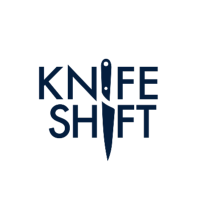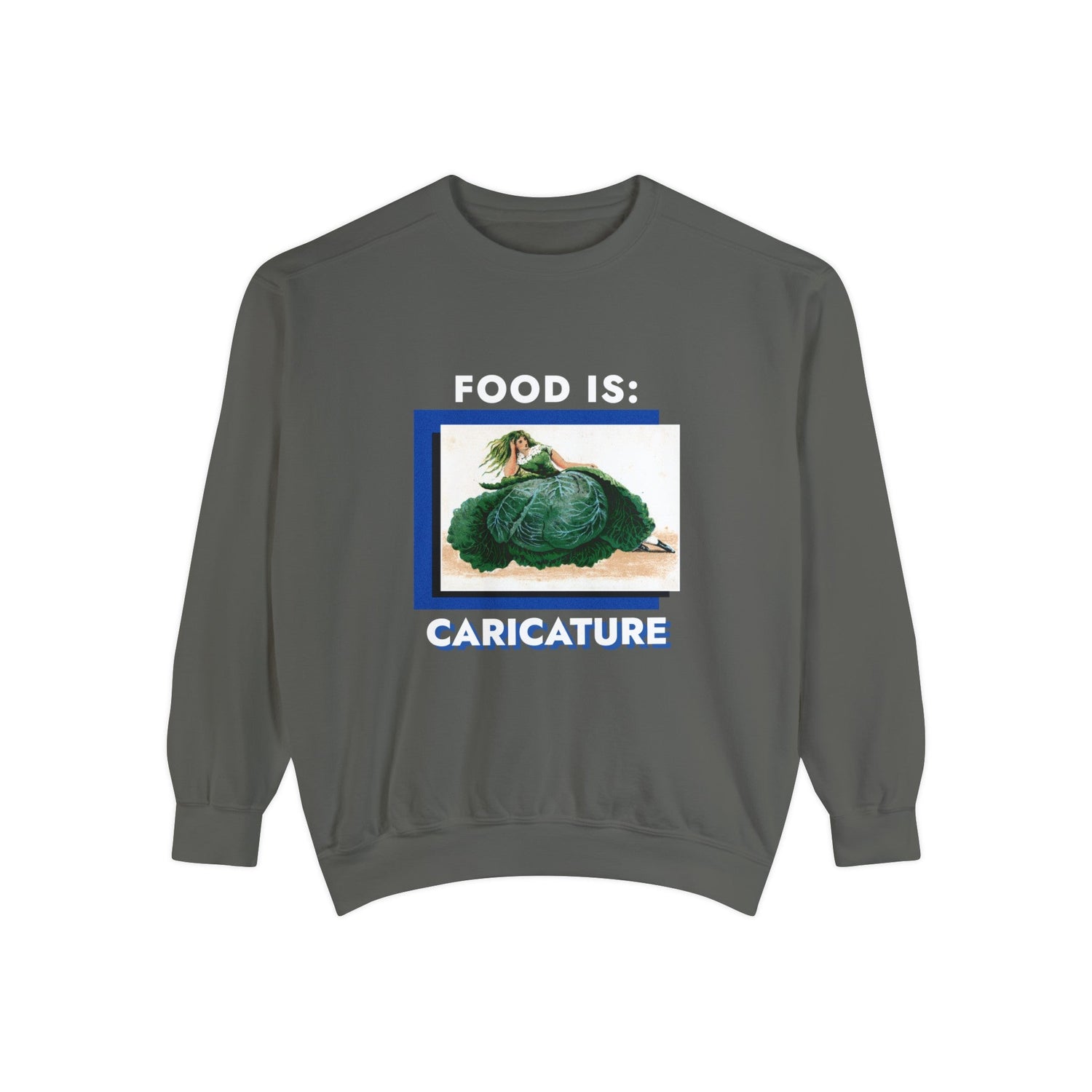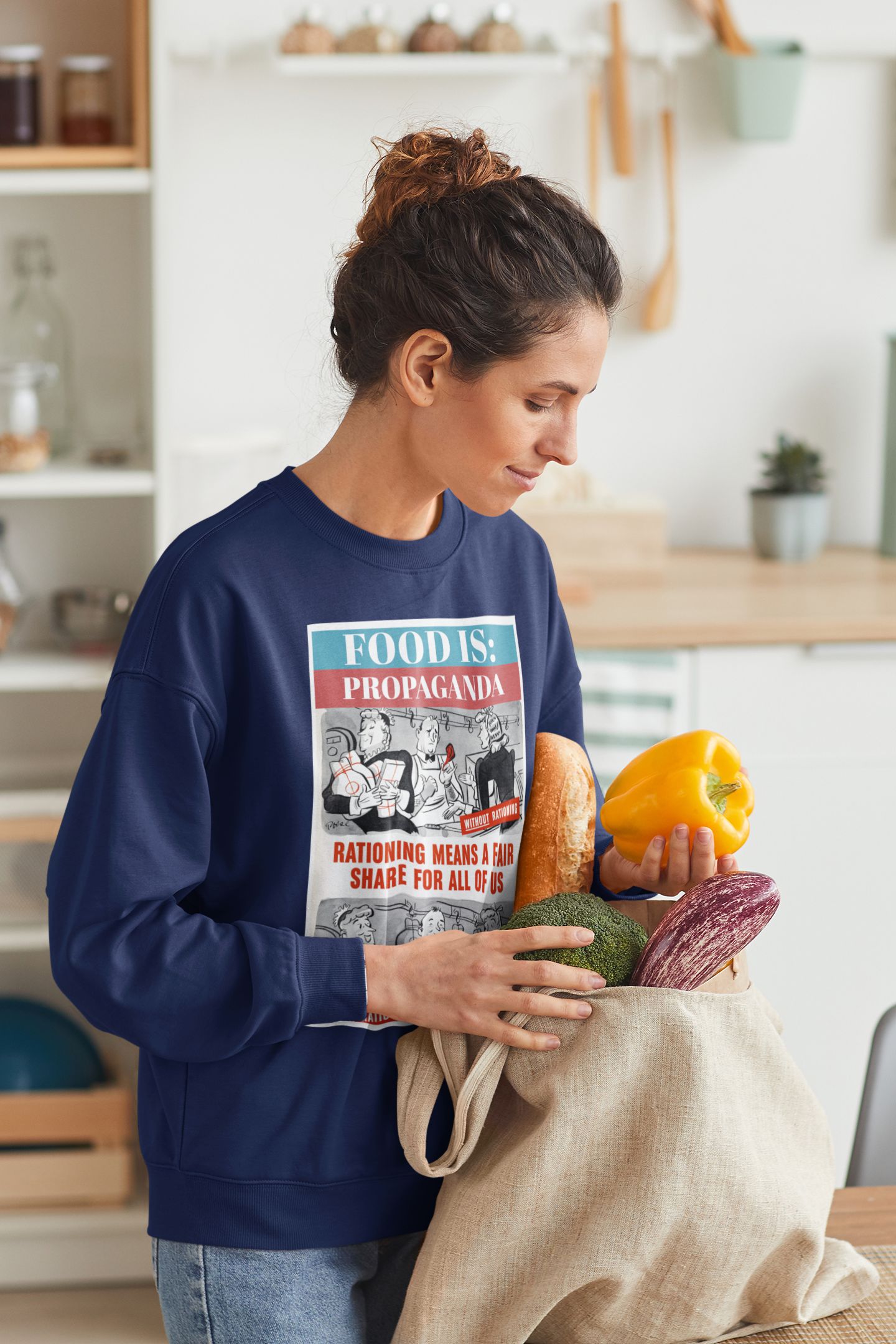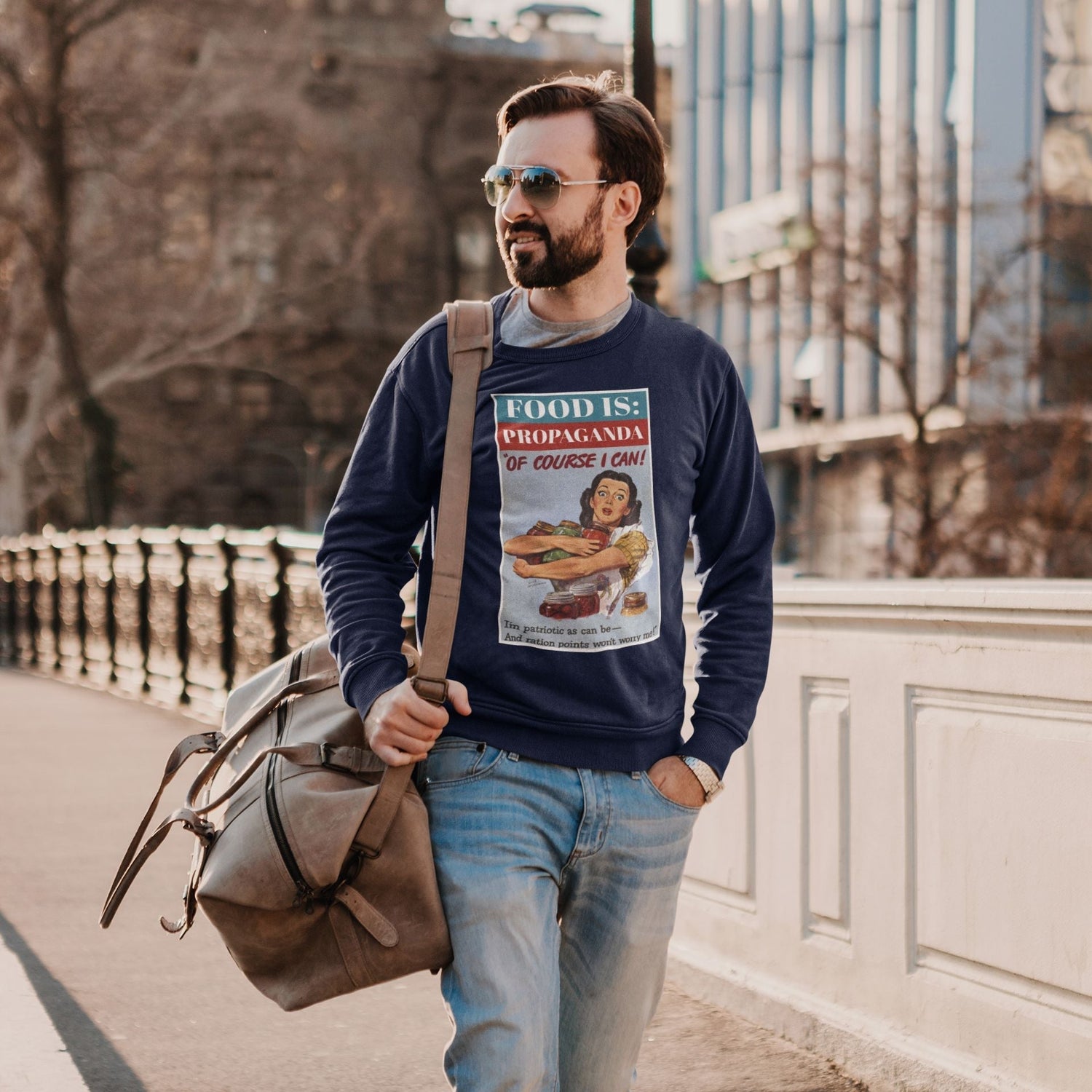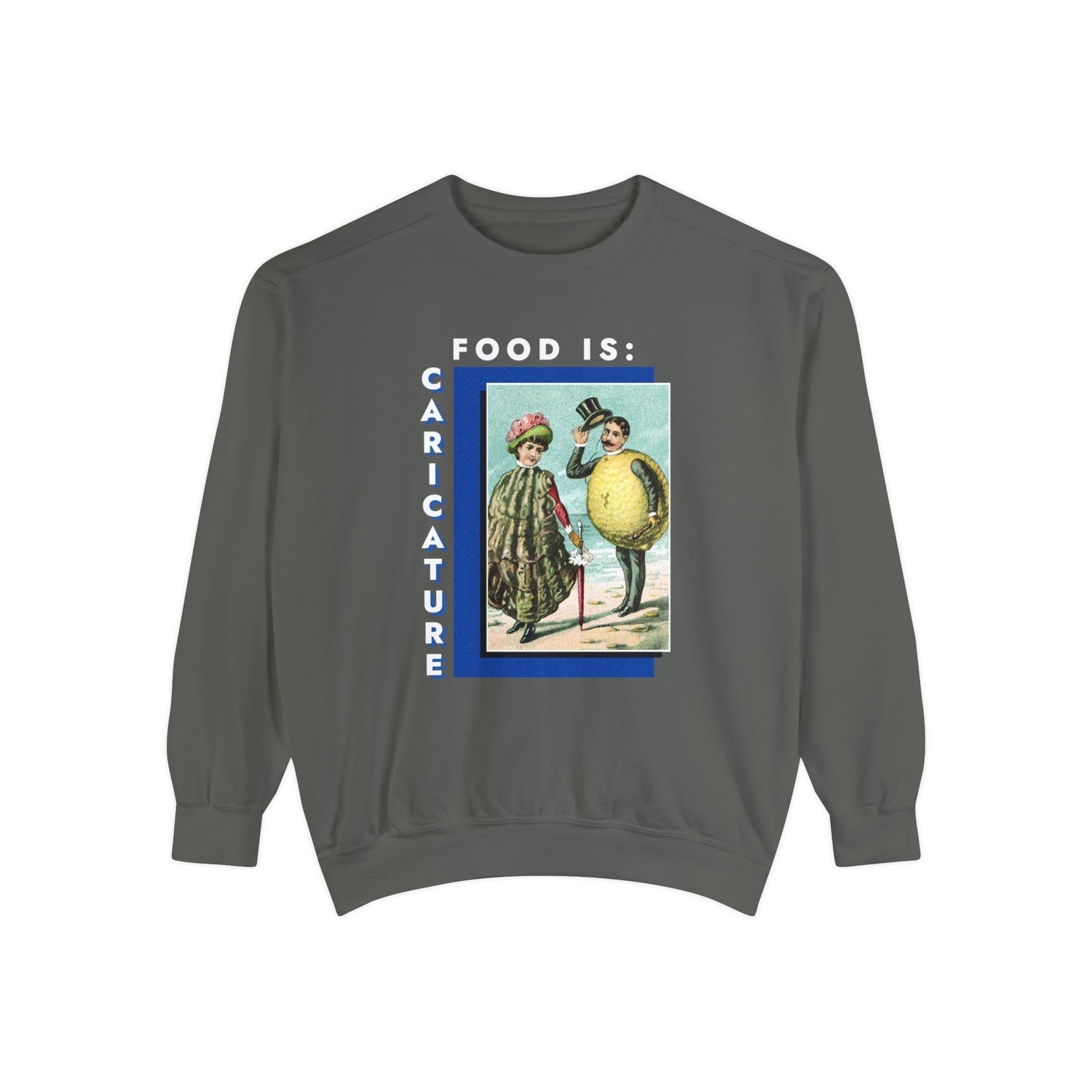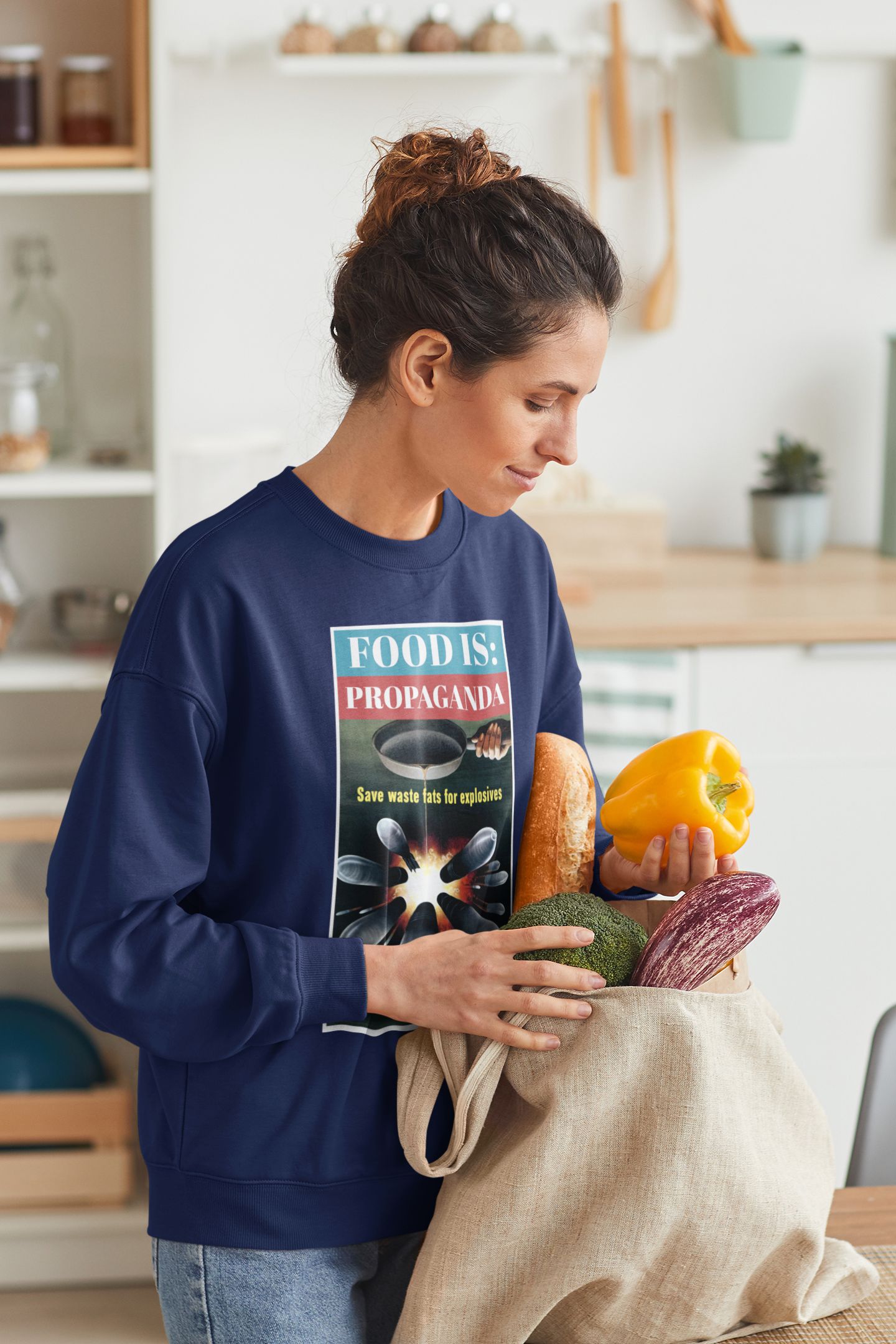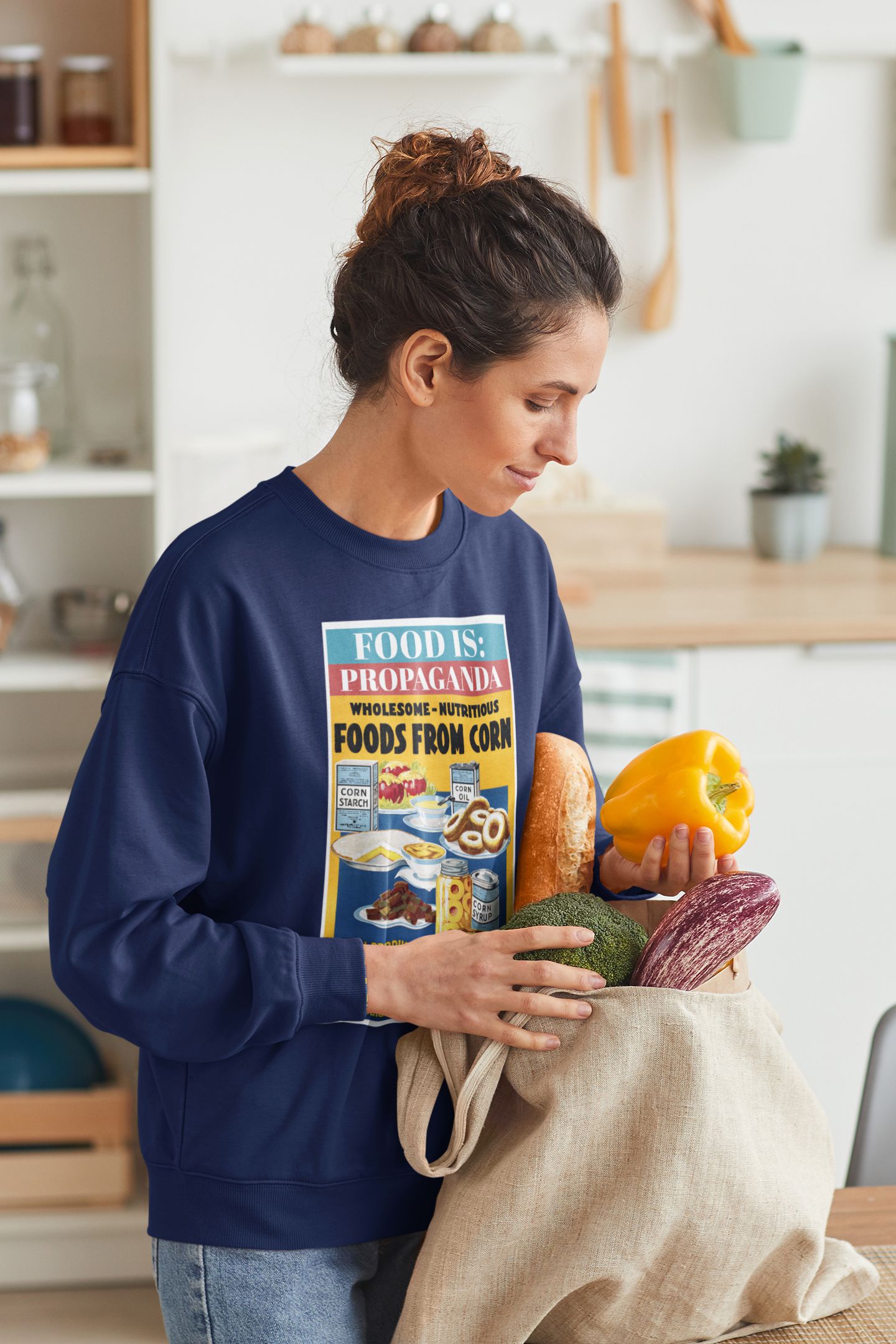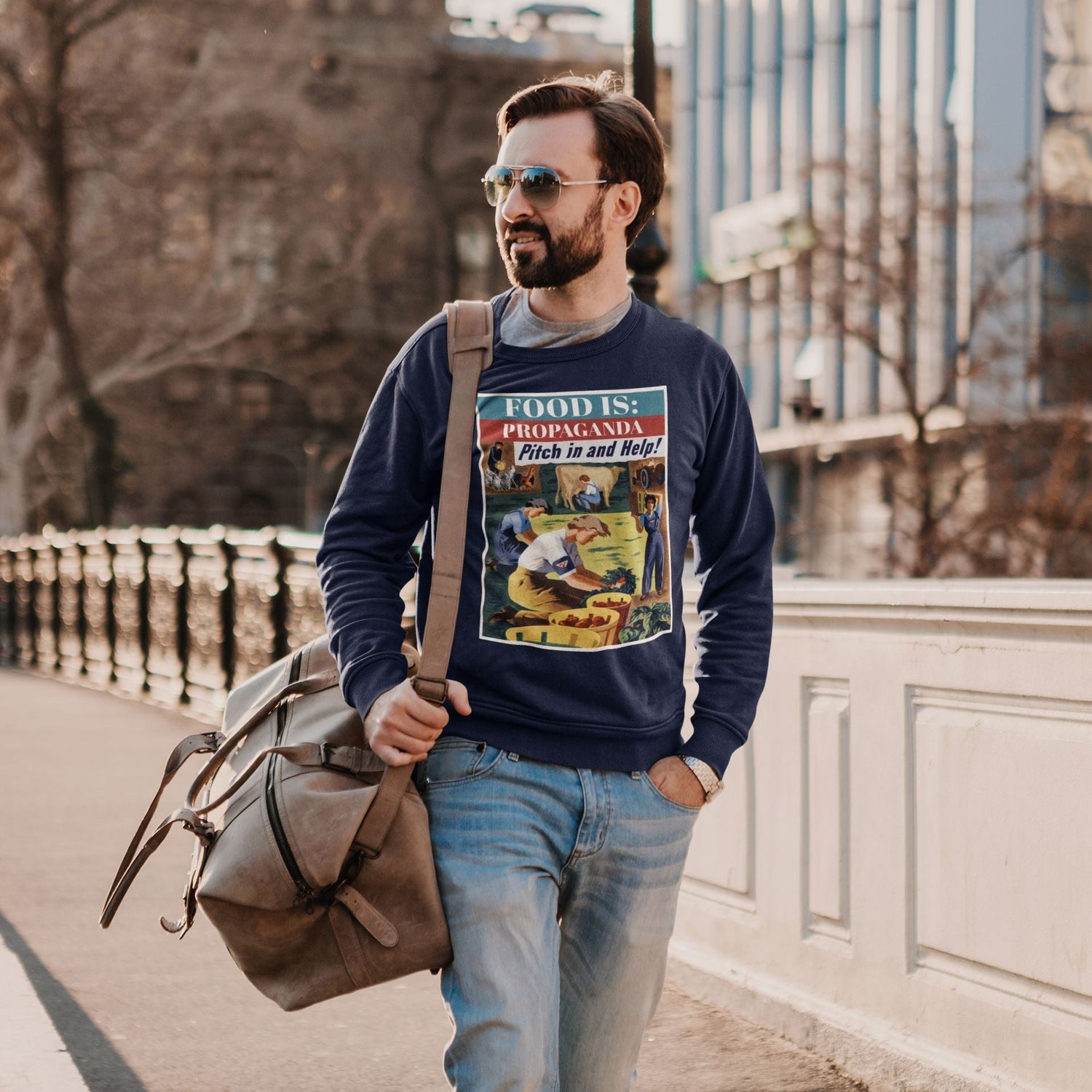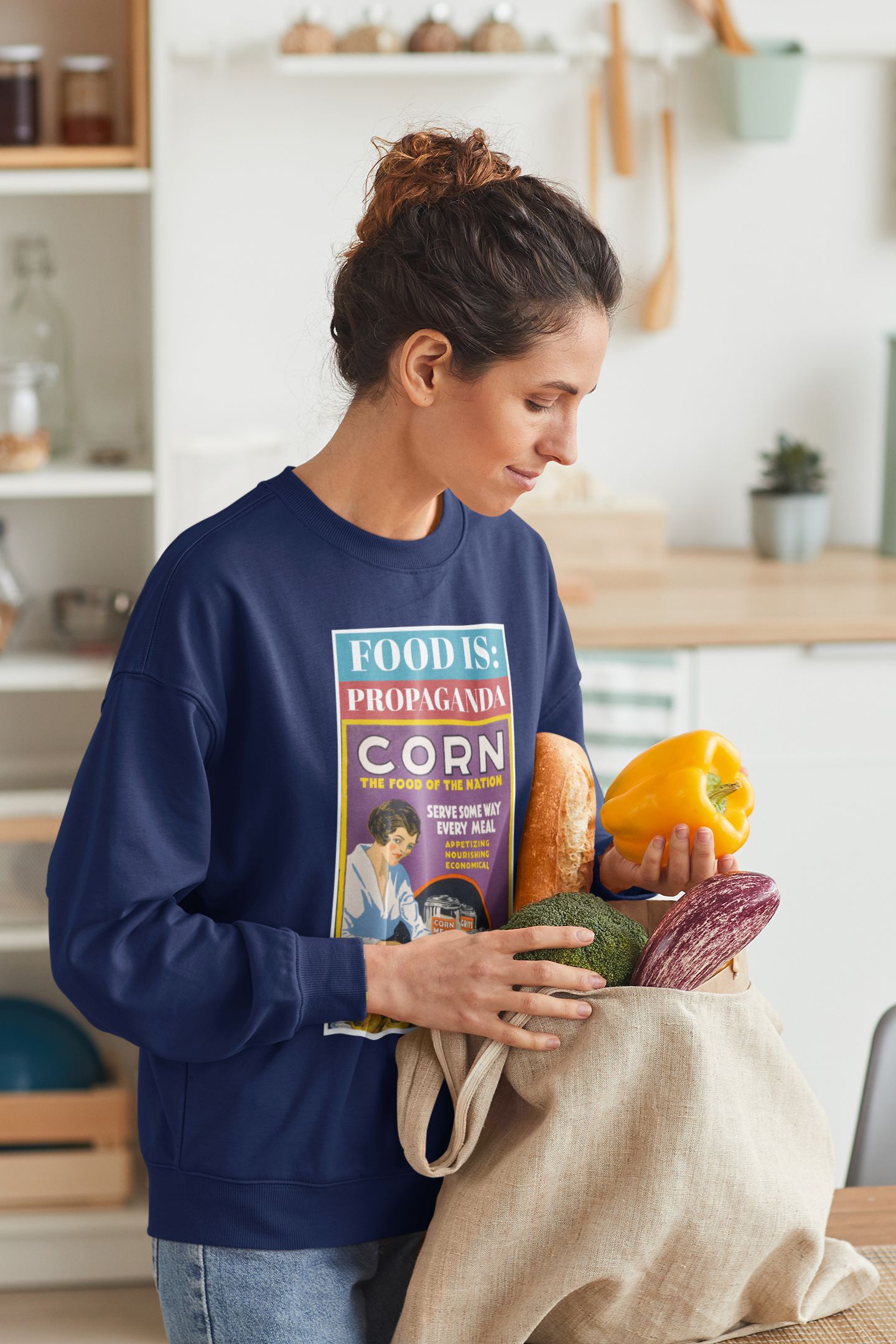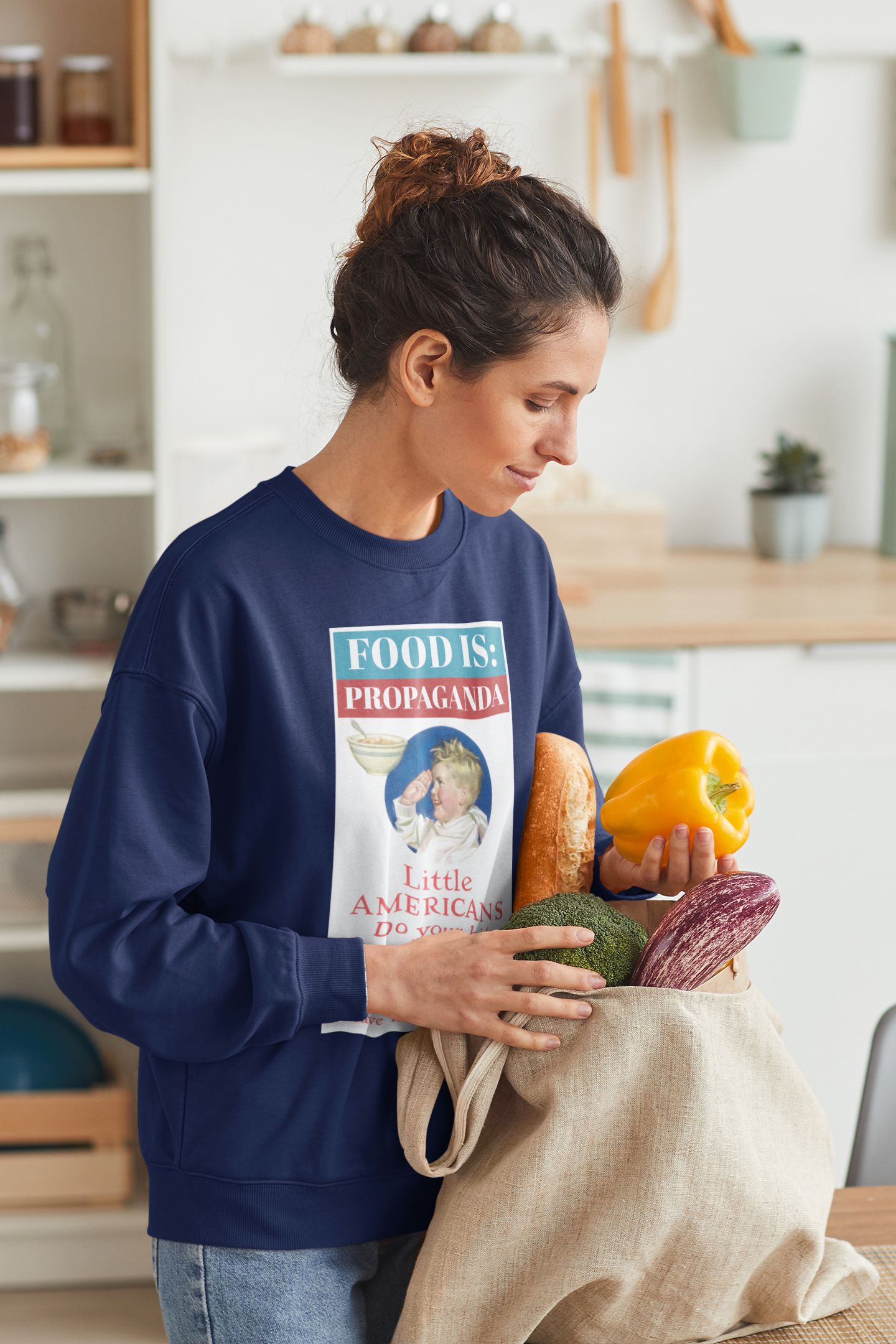Sort by:
71 products
71 products
About the Artwork:
The artwork pictured isn't attributed to a specific artist, but rather to the print shop Clay & Richmond, operating in Buffalo, New York during the mid to late 19th century. This company was known for producing quirky and often humorous chromolithographs, a type of colorful lithograph print.
The chromolithograph itself depicts a curious sight: a woman with an elegant posture leans confidently towards the viewer. Her unique gown, however, is the real showstopper. Instead of luxurious fabrics, she is adorned in a dress entirely fashioned from a single, vibrant green cabbage. The artist renders the ruffled leaves, creating an elegant ensemble.
Image courtesy of Boston Public Library via the Digital Commonwealth Collection.
About the Artwork:
Herbert Roese (1905-1986) was a prolific American commercial artist and illustrator active during the mid-20th century. While Roese created illustrations for various purposes, his work for the U.S. Office of Price Administration (OPA) during World War II holds particular significance. The OPA played a crucial role in managing wartime shortages through rationing. Posters like "Rationing Means a Fair Share for Us All" aimed to explain and garner public support for this essential wartime measure.
This seemingly straightforward poster utilizes a clever visual approach to convey its message. Divided into two distinct sections, the artwork tells a story. The top half depicts a scene of frustration. A woman appears to be trying to make a purchase without success at a local butcher, with a meager offering behind the counter. While another customer leaves with her purchases, the latter figure has no options to buy from. The bottom half presents a stark contrast. Two women, each holding a ration book and a small package, smile as they leave a well-stocked butcher shop. The text "Rationing Means a Fair Share for Us All" stretches across the top, emphasizing the poster's central message.
Image courtesy of Boston Public Library Digital Commonwealth Collections.
About the Artwork:
While the exact artist is unknown, "Man's head on a watermelon body" was produced by the print shop of Clay & Richmond, a Buffalo, New York-based company known for their playful chromolithographs in the mid-19th century. These vibrant prints were popular for their humorous and often bizarre imagery.
This particular chromolithograph features a curious sight: a man's head sitting atop a plump watermelon body. The man retains his clothing, with a shirt collar and dress slacks above and below the smooth green rind.
Image courtesy of Boston Public Library via Digital Commonwealth Collection.
About the Artwork:
Dick Williams (1908-1981) was an American commercial illustrator whose work flourished during the mid-20th century. While details about his career are somewhat scarce, his contributions to the war effort stand out. Williams created illustrations for various publications, but his impactful posters for the U.S. Department of Agriculture (USDA) like "Of Course I Can!" played a vital role in boosting morale and promoting resourcefulness on the home front during World War II.
This colorful poster features a bright-eyed woman in a checkered dress and apron. She carries an armful of jars of colorful fruits and vegetables. Her enthusiastic expression and determined stance communicate a sense of can-do spirit. The bold text "Of Course I Can! I'm as Patriotic as Can Be – And Ration Points Won't Worry Me!" completes the poster.
"Of Course I Can!" celebrates the essential contributions of civilians during World War II presenting food preservation as a form of patriotic duty.
Image courtesy of Boston Public Library Digital Commonwealth Collections.
About the Artwork:
The Buffords Sons Lith. Co. was a prominent American lithography firm based in Boston, operating with influence throughout the 19th century. Founded by John Henry Bufford, a key figure in the development of American lithography, the company was known for its high-quality prints, illustrations, and posters. Their work often included vibrant and detailed images that catered to a wide range of commercial and artistic needs, capturing the cultural and social nuances of American life during that era. Their contribution to the lithographic arts is notable for both technical innovation and the popularization of artistic prints.
"Miss Shell and Mr. Lemon" features anthropomorphic representations of an oyster shell and a lemon in a playful, possibly romantic interaction. Miss Shell is elegantly and delicately detailed while Mr. Lemon is depicted with a zestful and bright appearance, enhancing his citrus character.
Public domain image courtesy of Cornell University Library Digital Collections, modified.
About the Artwork:
Henry Koerner (1915-1991) was an Austrian-born American painter and graphic designer best known for his work during the mid-20th century. Koerner's artistic talents found a critical outlet during World War II when he was recruited by the U.S. Office of War Information. Posters like "Save Waste Fats for Explosives" were part of a nationwide campaign mobilizing everyday citizens to contribute to the war effort in unexpected ways.
This dramatic poster features a powerful visual metaphor. A woman's hand, illuminated from below, pours grease from a skillet directly into a fiery explosion. Shrapnel and bomb casings erupt from the center, symbolizing the transformative power of recycled fat. The stark black background intensifies the imagery. The text "Save Waste Fats for Explosives. Take Them to Your Meat Dealer" appears in bold white lettering at the top and bottom, delivering a clear call to action.
Image courtesy of Boston Public Library Digital Commonwealth Collections.
About the Artwork:
Lloyd Harrison (1864-1931) was an American commercial artist known for his vibrant and detailed illustrations. Active during the early 20th century, Harrison primarily created advertisements for various companies. However, his work for the U.S. Food Administration during World War I holds historical significance. Posters like "Wholesome – Nutritious: Foods from Corn" aimed to educate the public about alternative food sources during wartime shortages.
This colorful poster features a festive display of corn-based products. The composition is an array of tempting dishes made with corn. Baked goods like bread and cake sit alongside cans of corn starch and corn oil. The text "Wholesome – Nutritious. Foods from Corn" arches boldly across the top, emphasizing the health benefits of corn.
"Wholesome – Nutritious: Foods from Corn" served a dual purpose during World War I. As wheat supplies dwindled, the U.S. Food Administration encouraged citizens to incorporate more corn into their diets. The abundance of corn-based dishes showcased in the poster demonstrates the versatility of this grain. From breakfast staples like pancakes to savory grits, the artwork highlights corn's potential to satisfy a variety of culinary needs.
Image courtesy of Boston Public Library Digital Commonwealth Collections.
About the Artwork:
Hubert Morley (1888-1951) was an American painter, etcher, and commercial artist. While Morley's career spanned various artistic mediums, he's particularly recognized for his contributions to the war effort during World War II. Morley created numerous posters for the U.S. government, motivating the public to support the war cause through rationing, production increases, and civilian participation.
"Pitch in and Help! Join the Women's Land Army of the U.S. Crop Corps" features four American women working on a farm. One drives a tractor, another milks a cow, and two others harvest vegetables and tend to chickens. Their expressions are determined and focused. The title urges viewers to "Pitch in and Help!" by joining the Women's Land Army.
Image courtesy of Boston Public Library Digital Commonwealth Collections.
About the Artwork:
This advertisement card printed in the United States in 1887 is a chromolithograph that features one man and two women with the bodies of red radishes. The image is meant to be humorous and eye-catching, and served as a calling card for Rice's Seeds to promote a variety of globe radishes.
Image courtesy of Boston Public Library via the Digital Commonwealth Collection.
About the Artwork:
Lloyd Harrison was an accomplished graphic artist known for his impactful and compelling propaganda posters, particularly those produced during World War I. Harrison's work often combined bold imagery with persuasive slogans to influence public opinion and motivate specific behaviors during a time of national need. His style is characterized by vibrant colors and dynamic compositions, which were effective in capturing the attention of a broad audience. His posters not only served practical purposes during wartime but also stand as significant historical documents that provide insight into the socio-political climate of the early 20th century.
"Corn - the Food of the Nation" by Lloyd Harrison is a striking propaganda poster that was part of a larger effort to encourage American consumers to adjust their food consumption habits during World War I. The artwork features a woman preparing baked goods like muffins and pancakes, which sit alongside canisters labeled "corn meal," "grits," and "hominy."
Image courtesy of Boston Public Library Digital Commonwealth Collections.
About the Artwork:
Charles Livingston Bull (1874-1932) was an American artist and illustrator renowned for his detailed and dynamic depictions of wildlife. A prominent figure during the Golden Age of American illustration, Bull's work graced the covers of magazines like Good Housekeeping and The Saturday Evening Post. Beyond commercial art, Bull also contributed to the U.S. war effort during World War I by creating informative and persuasive posters, like "Save the Products of the Land."
Image courtesy of Boston Public Library Digital Commonwealth Collections.
About the Artwork:
Cushman Parker (1915-1991) was an Austrian-born American painter and graphic designer best known for his work during the mid-20th century. Parker was recruited by the U.S. Food Administration during World War I. Posters like "Little Americans, Do Your Bit" were part of a nationwide campaign mobilizing everyday citizens, including children, to contribute to the war effort in unexpected ways.
This poster features a young boy dressed in patriotic red, white, and blue raising his right hand in a salute. His gaze is fixed on a bowl of oatmeal in front of him, a spoon held mid-air. The text reads, "Little Americans, Do Your Bit: Eat Oatmeal, Corn Meal Mush, [...] Save the Wheat for Our Soldiers" in bold letters around the image. The final line reads, "Leave Nothing on Your Plate."
Image courtesy of Library of Congress Catalog.
